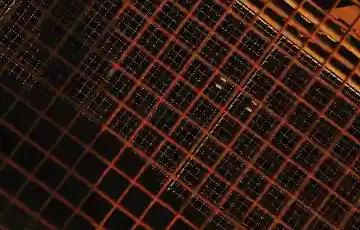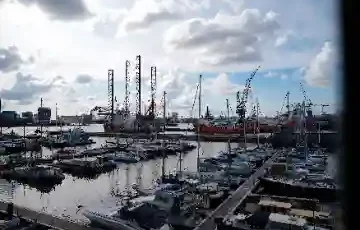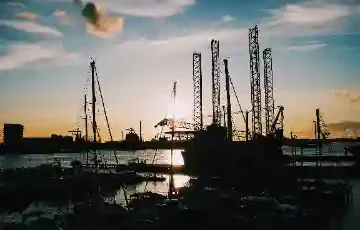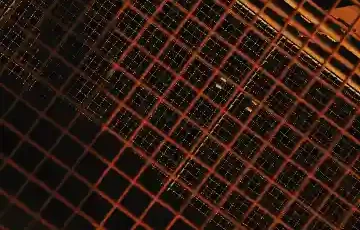Legal advice on recycling encompasses support with permit procedures, contract management, waste legislation and compliance with Environmental Law for recycling companies. Specialists advise on waste substances law, end-of-waste criteria, financial security requirements and circular economy principles under the Dutch Civil Code and Environmental Management Act.
The recycling industry develops at breakneck speed. The Netherlands processes tens of billions of kilograms of waste annually, with focus shifting from landfill and incineration toward reuse and recycling. This transition toward a circular economy confronts entrepreneurs with complex legal questions about permits, contracts and enforcement. Therefore, specialized legal advice provides legal certainty when navigating changing legislation and regulations.
Recycling companies operate within a dynamic legal framework. The Environmental Law, which took effect on January 1, 2024, fundamentally changed how permits are requested and how long waste substances may be stored. Simultaneously, the government imposes stricter requirements on financial security for waste processing companies. Consequently, effective recycling management demands current legal knowledge of national and European regulations.
What Legal Aspects Are Relevant for Recycling Companies Under Dutch Law?
Recycling enterprises must comply with permit requirements, contractual agreements with waste producers, enforcement rules and financial securities under the Environmental Law. Additionally, end-of-waste criteria, storage duration restrictions and compliance with European SUP directives play crucial roles in daily operations.
Permit procedures form the legal foundation for recycling activities. According to the Environmental Law, companies must request an environmental permit for activities affecting the physical environment. This permit replaces various former permits from the Environmental Management Act. The procedure requires detailed technical documentation about processing methods, emissions and safety measures. Legal support during these procedures prevents delays and significantly increases success rates.
Contract management protects recycling companies against legal risks. Waste processing contracts contain specific agreements about processing deadlines, quality requirements, liability and payment. General terms must align with industry standards and protect against unreasonable demands from creditors. Moreover, contracts regulate responsibility distribution when waste substances fail to meet specifications or when processing procedures stagnate. An Amsterdam recycling specialist emphasizes that 75% of disputes are prevented through clear contractual terms.
Enforcement demands proactive compliance. The competent authority regularly monitors whether recycling companies comply with permit conditions. Violations such as excessive storage duration, unauthorized processing methods or incorrect administration lead to penalty payments or shutdown. Therefore, successful recycling enterprises implement compliance systems that guarantee adherence and reduce administrative burdens.
How Does Financial Security Work in the Netherlands?
The competent authority can require permit-obliged waste and recycling companies to provide financial security through bank guarantees or sureties. This ensures costs for remediation, restoration or removal remain covered when the company can no longer meet obligations or cannot restore damage.
Financial security protects society against risks. Namely, when a recycling company goes bankrupt or ceases activities with remaining waste substances, someone must clean up and remediate. The Environmental Law therefore reintroduces the obligation for financial security that previously existed under the Environmental Management Act. The competent authority determines the amount based on processing capacity, nature of waste substances and potential environmental risks.
Different forms of security are acceptable. Recycling companies can choose between bank guarantees, sureties by creditworthy institutions or insurance products. The form must meet criteria from Article 2.12 of the Environmental Quality Decree. Additionally, the competent authority periodically assesses whether provided security remains adequate given changed business circumstances.
A practice example illustrates the importance. A recycling company in Amsterdam processed 50,000 tons of construction and demolition waste annually on a 15,000 square meter site. The competent authority required a bank guarantee of €750,000 for potential remediation costs. When the company later expanded activities to 75,000 tons per year, the guarantee needed to increase to €1,125,000 to ensure coverage.
What Are End-of-Waste Criteria and Who Proves This Under Dutch Law?
End-of-waste criteria determine when a waste substance loses its legal waste status and becomes raw material again. The producer carries the burden of proof and must demonstrate the material meets European criteria for functionality, market value, legality and environmental safety according to the Waste Framework Directive.
Loss of waste status creates legal and economic advantages. Namely, as long as a substance legally qualifies as waste, strict transport, storage and processing rules apply under the Environmental Management Act. However, once waste status ends, these restrictions disappear and the material can be freely traded as raw material. Therefore, recycling companies strive to reach the end-of-waste moment quickly.
Burden of proof lies with the producer or processor. European case law shows that whoever claims waste status has ended must prove this toward the competent authority. This requires thorough documentation about processing procedures, quality controls, market demand and conformity with product standards. Moreover, the competent authority can request a legal assessment when doubting the status.
A legal assessment offers legal certainty about waste status. Recycling entrepreneurs can request the competent authority for a formal judgment whether certain material still constitutes waste. Although the procedure lacks statutory regulation, case law applies this practice as an instrument for legal protection. The judgment binds the competent authority and creates clarity for operations. Nonetheless, requesting requires time investment and legal foundation.
What Storage Duration Restrictions Apply to Waste Substances in Dutch Law?
Under the Environmental Law, waste substances may be stored for maximum one year when preparing for beneficial application and three years when preparing for disposal. These deadlines follow from the Environmental Quality Decree and correspond with rules that previously existed in the Environmental Management Act.
Exceeding storage deadlines leads to enforcement. The competent authority can impose penalty payments or issue an order under administrative coercion for excessive storage. In 85% of detected violations, waste substances stored unchanged for longer than five years are involved. Therefore, professional recycling companies implement inventory management systems that automatically alert when deadlines approach expiration.
Storage duration starts upon receipt of the waste substance. Legally speaking, counting begins from the moment the creditor actually possesses the waste substance. Interim processing or treatment can influence the deadline, depending on substantial change in composition or destination. Additionally, splitting or combining batches without processing step does not reset the deadline.
Extension is exclusively possible through permit modification. When recycling processes unexpectedly stagnate due to market developments or technical problems, companies cannot independently store longer. Instead, this requires a formal permit modification where the company must justify why exceeding is necessary. The procedure averages eight weeks, so proactive planning prevents emergency situations.
How Does Circular Economy Influence Legal Frameworks in the Netherlands?
The transition toward a circular economy modifies legal concepts about ownership, liability and product responsibility. Construction contracts increasingly contain clauses about dismantling and reuse, while producers remain responsible longer for materials according to extended producer responsibility under European regulations.
Circular business models demand new contract structures. Traditionally, legal responsibility ends at sale or delivery. However, circular models such as product-as-a-service keep producers owners of materials they receive back after use. This affects liability, insurance obligations and taxation. Therefore, specialized lawyers develop new contract forms that legally secure circular value chain agreements.
Chain collaboration intensifies legal complexity. Circular economy requires cooperation between material producers, designers, users and recycling companies. Each link carries responsibility for specific aspects such as product design, information provision or keeping suitable for recycling. Moreover, chain agreements regulate who is liable when products prove non-recyclable or when raw material prices plummet.
A concrete example demonstrates practical impact. An Amsterdam construction company concluded a circular contract for office furnishing worth €500,000 in 2024. The contract stipulated the supplier remained owner of furniture and lighting fixtures, with return obligation after ten years. Legal clauses regulated maintenance, insurance, liability for damage and valuation at interim termination. This structure required customized contracting and fiscal advisory.
What Does the SUP Directive Entail for Recycling Companies Under Dutch Law?
The European Single Use Plastic (SUP) directive prohibits disposable plastic products such as straws and plates and mandates producer responsibility for collection and recycling of plastic packaging. This affects recycling companies because waste streams change and new recycling obligations arise for producers according to Directive 2019/904.
The SUP directive targets the ten most common litter products. Research on beach litter revealed plastic disposable products form 70% of marine litter. Therefore, the directive implements phased measures: prohibitions since July 2021, mandatory marking since July 2022, and extended producer responsibility since 2023. These changes directly influence which material streams recycling companies receive.
Bio-based and compostable plastics also fall under the directive. Many entrepreneurs assume bioplastics are exempt from SUP restrictions. However, biodegradable and compostable plastics do not break down under natural circumstances and fall completely under regulations. Additionally, legal interpretation shows breakdown is only possible under controlled industrial composting conditions, not in natural environments.
Producer responsibility creates new obligations. Producers of plastic packaging must financially contribute to collection, transport and recycling. They join collective collection systems or organize individual systems. Recycling companies benefit from more stable supply and financing, but also experience stricter quality requirements for recycled output meeting European minimum standards.
What Role Does the Circular Materials Plan Play in Dutch Law?
The Circular Materials Plan (CMP) replaces the National Waste Management Plan and establishes national goals for circular economy until 2032. The plan contains binding rules about waste separation, recycling percentages and processing that directly apply to recycling companies according to the Environmental Quality Decree and Article 10.49 of the Environmental Law.
The CMP shifts focus from waste management to raw materials management. Where the previous National Waste Management Plan primarily regulated processing routes, the CMP prioritizes preservation of raw material value. This means preference for high-quality recycling over energy recovery. Recycling companies must demonstrate processing methods optimally preserve raw material value, which requires higher investments in advanced separation technology.
New recycling targets increase legal pressure. The CMP stipulates the Netherlands must recycle minimum 65% of household waste in 2032. For specific streams such as plastic packaging, a target of 55% applies. Nonetheless, CBS figures show the Netherlands only recycled 52% of household waste in 2023. This means recycling capacity must grow substantially, which affects permit applications, financing and location selection.
The plan introduces differentiation by processing quality. Henceforth, only actual recycling counts toward objectives; thermal processing or temporary storage without further processing does not count. Moreover, the competent authority regularly assesses whether recycling processes deliver sufficient quality. When deficiencies exist, permits can be revoked or tightened with additional provisions.
How Do You Handle Mobile Crushing Equipment in the Netherlands?
Mobile crushing equipment for construction and demolition waste at the demolition location falls under specific rules from the Environmental Construction Works Decree. This activity requires an environmental permit with provisions about noise emission, dust dispersion and working hours according to Article 3.10 of the Environmental Construction Works Decree.
Mobile crushing offers environmental and logistical advantages. By crushing material directly at the demolition location, transport reduces and raw material remains available for reuse on site. In Amsterdam, a large demolition project prevented transport of 25,000 tons of concrete because mobile crushing equipment made material processable on location. This saved 1,250 truck trips and associated CO2 emissions.
The Environmental Law marginally changed regulations. Where the Mobile Crushing Construction and Demolition Waste Decree applied under the Environmental Management Act, the Environmental Construction Works Decree now regulates the same activity. Provisions about noise standards, dust control and notification obligations remain largely unchanged. However, the permit procedure now follows the integrated Environmental Law system with uniform public preparation procedure.
Compliance with provisions prevents enforcement. Many municipalities receive complaints about noise nuisance, vibrations and dust during mobile crushing activities. Therefore, they strictly enforce noise standards outside working hours and dust control measures. A recycling company received a penalty payment of €15,000 in 2024 for exceeding noise standards by 8 decibels during evening hours. Legal advice about permit conditions would have prevented this.
What Fiscal Aspects Play a Role in Recycling Under Dutch Law?
Waste tax and VAT treatment influence business economics of recycling. Legal advice helps recycling companies optimize fiscal positions through correct application of exemptions and rates. Subsequently, this ensures competitive advantage and better cash flow.
Waste tax applies to landfill and incineration. The Netherlands levies tax on waste that is landfilled or incinerated according to the Environmental Taxes Act. The rate amounts to €34.71 per 1,000 kilograms for landfill and €14.93 for incineration in 2025. Recycling is exempt, which creates economic stimulus for high-quality processing. However, discussion exists about when material is sufficiently processed to qualify as recycled.
VAT treatment differs per processing step. Intake of waste by recycling companies often knows reduced VAT rate or exemption, depending on material type and processing method. Delivery of secondary raw materials follows regular VAT rules. Moreover, this significantly affects cash flows, especially with large batches. A recycling company with €5 million annual turnover saves €450,000 in VAT pre-financing through correct application of fiscal regulations.
Environmental subsidies support innovative recycling. The Netherlands Enterprise Agency offers subsidy schemes for investments in circular production and recycling technology. Applications require technical and legal documentation demonstrating projects contribute to circular objectives. Successful applications demand coordination between technical, financial and legal expertise.
Do you want certainty about compliance with recycling legislation? Specialized lawyers in Amsterdam analyze your permit situation and advise about optimization of processing procedures within legal frameworks.
What Are Common Legal Disputes in Recycling According to Dutch Law?
Contract breach by waste producers, disputes about quality of recycled materials and discussions about processing rates dominate legal conflicts. These disputes often escalate to court proceedings when parties reach no amicable solution.
Delivery disputes about waste streams occur frequently. Contracts specify composition, purity and quantity of waste substances to be delivered. When actual deliveries deviate, discussion arises about applicable rates and processing costs. In 75% of these disputes, unclear contract formulation plays a role. Therefore, legal advisors emphasize the importance of precise specifications with measurable criteria and consequences for deviation.
Liability for environmental damage causes legal proceedings. When recycling processes lead to soil contamination, groundwater contamination or air pollution, legal analysis determines who is liable according to Article 6:162 of the Dutch Civil Code. Creditors such as residents or authorities can claim damages. Moreover, historical contaminations complicate determination of responsible parties, which requires forensic environmental investigation and legal reconstruction.
Enforcement procedures against government decisions increase. Recycling companies initiate administrative law procedures against rejection of permit applications, revocation of existing permits or imposed penalty payments. Successful procedures require legal foundation that decisions are careless or disproportionately interfere with operations. Average duration of a procedure at the District Court of Amsterdam is eight months until judgment.
How Do You Prepare for Future Regulations in the Netherlands?
European Green Deal legislation, tightening of recycling targets and expansion of producer responsibility require proactive legal preparation. Recycling companies that now invest in compliance and legal advisory maintain competitive position.
The European Green Deal introduces ambitious recycling obligations. According to the Circular Economy Action Plan, the EU must double material consumption and halve waste by 2030. This translates into national legislation with stricter requirements for recycling percentages, product design and use of secondary raw materials. Additionally, minimum percentages of recycled material in new products are coming, which stimulates demand for high-quality recycling.
Digitalization transforms waste registration and transparency. The European Commission develops digital product passports that record complete material history. This increases traceability but also raises administrative burdens for recycling companies. Therefore, leading companies invest in IT systems that automatically comply with registration requirements and exchange data with chain partners according to standardized protocols.
Legal monitoring prevents surprises. Specialist lawyers follow developments in European directives, Dutch implementation legislation and case law. They signal timely when adjustments in operations become necessary and advise about implementation strategy. An Amsterdam recycling company prevented €200,000 investment in outdated technology through legal advice about forthcoming changes in recycling standards.
Contact specialized lawyers in Amsterdam for legal advice about recycling legislation, permit optimization and contract management. Proactive legal guidance protects your company against risks and creates opportunities in the circular economy.









